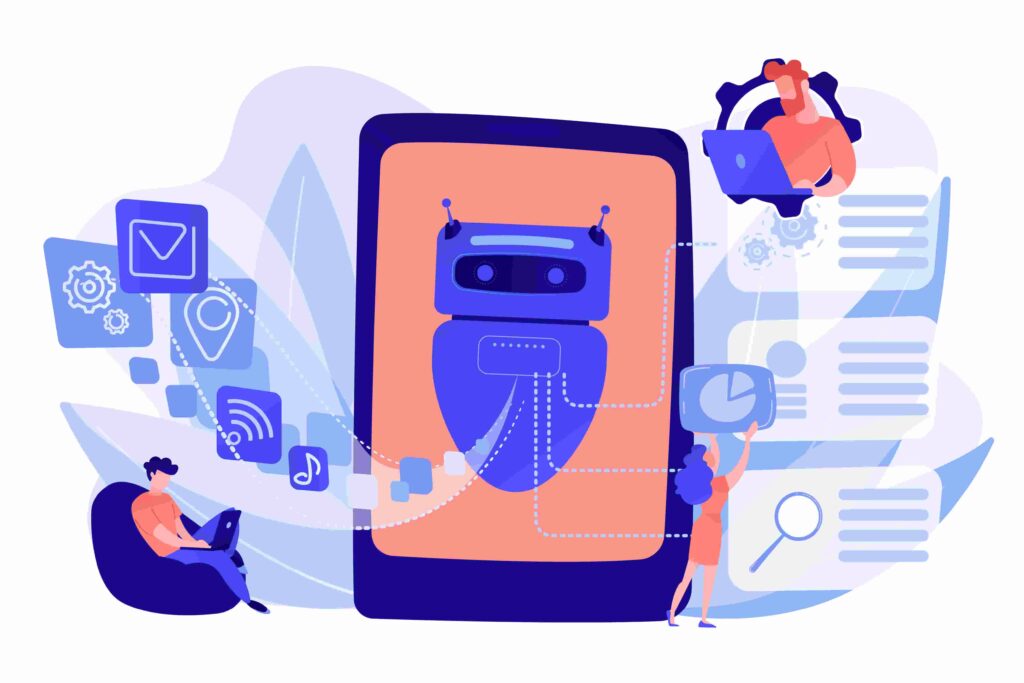Computer security is the protection of systems against intrusion, data theft or disclosure, and software or hardware damage.
As one of the biggest challenges today, because of the growing number of smart devices connected to the network, computer security is critical to ensure the protection of a company’s strategic data.
To prevent digital threats, a company must have a team of professionals that are able to test, anticipate, and quickly identify the vulnerabilities of a system.
This article will discuss:
- Computer security – what is it?
- Computer security threats
- Why computer security is so important
- How to deploy computer security
- Ten facts about computer security
- The Milvus platform
Enjoy the article!
Computer security – what is it?
Computer security, or cybersecurity, refers to protection of devices and systems from system intrusion, preventing data theft, device damage, and file alteration.
As a growing field within information technology, computer security is critical to ensure data integrity, confidentiality, and availability, and protect the strategic and private information of a company.
Computer security threats
Computer security is constantly under threat from different sources, such as:
- Emails with malicious links;
- Outdated software programs;
- Pirated applications;
- Suspicious websites;
- Infected removable media (such as a USB flash drive);
- Among others.
Malware – or malicious software – is a file or code that infects the system or computer, affecting files, programs, and even the device itself.
In this case, the company loses important and strategic information for the business and can’t conduct its usual activities, as it generally depends on these tools.
Having computer security professionals is important to minimize the company’s vulnerabilities, reducing the effects of possible intrusions.
Can you imagine having your projects, financial information, and strategic plans stolen by a cybercriminal? Can you imagine having your computers invaded and turned into junk?
In addition to the financial loss, a company’s competitive advantage and differentiation, and its credibility are put to the test, which can further impact the business.
Why computer security is so important
As discussed above, computer security is a collection of measures adopted to prevent system intrusions and digital threats, reducing the negative effects on the business.
Without these measures, the business becomes vulnerable, including your projects, strategies, differentiations, not to mention your team’s personal information and communication.
In a moment of inattention, customer and supplier data, exchanged messages, and other sensitive information can be stolen.
How to deploy computer security
To implement computer security in your company, you need three main actors: people in charge of computer security management, computer security mechanisms, and the development of policies to be shared with everyone in the company.
With these three actors, you can create an effective and efficient process to prevent threats. More information about them is provided below.
People in charge
For in-house IT departments, roles must be assigned to every member of the team, because the IT department performs several activities: software development, infrastructure issues, support to users and networks, security issues, among other tasks.
These professionals must be specifically focused on computer security to ensure proper attention to this topic.
Mechanisms
Computer security experts are prepared to choose and implement proper mechanisms, according to the company’s reality, work models, and current scenario, fulfilling its security needs.
For example, in a company with employees working from home, the computer security analyst must provide a VPN (virtual private network) for secure access.
Other mechanisms that should be considered include an antivirus program, a password policy, two-step verification, digital certificate, among others.
Policies
Once the company’s security mechanisms have been defined, the person in charge must develop clear and effective policies.
Computer security policies must be shared with all employees, so that users can understand their role in eliminating or reducing digital threats.
After all, it’s no use investing in systems and trained professionals for the IT department if users keep installing counterfeit programs or opening suspicious email attachments.
Ten facts about computer security
As you have seen, computer security involves a number of measures and methods to protect the confidentiality, integrity, and availability of files, information, systems and devices.
However, methods and tools are useless if users don’t assume responsibility in situations involving computer security.
For this reason, we present below ten facts that address technical and routine aspects as well as issues that are directly related to user behavior.
Users must understand their obligations so that vulnerabilities become less threatening.
-
Change your passwords regularly
A report issued by Verizon, a US-based telecom holding company, shows that around 80% of data breaches are the result of weak user passwords.
This report highlights the importance of using more complex standards to ensure better protection. However, using a strong password alone is not enough.
One of the biggest problems in companies is the inadequate sharing of passwords between employees. It doesn’t seem a big deal, after all, you share your password with a colleague when necessary.
But the point is, after sharing your password, you have no control over your data security and privacy.
For this reason, the company must require users to change their passwords regularly as part of its computer security strategy.
This way, users create the habit of updating their access keys, eliminating possible tracks that allow the intrusion of strangers.
The company’s security policy can also include some requirements to prevent passwords with less than 3 digits or easily accessible information, such as user name and birth date.
-
New devices do not guarantee computer security
New computers or smartphones also present security vulnerabilities. Over time, companies release updates to correct system issues identified when a device is used. So, new devices are still not fully known.
-
All software programs have security vulnerabilities
Yes, all software programs. For this reason, you must conduct proper maintenance and install software updates.
And of course, never install pirated or suspicious programs. Open source systems are also more vulnerable as they are exposed to attacks.
Ideally, computer security professionals from the IT department should analyze every software program to be used by the company, and then install, manage, and set permissions according to the type of user.
-
HTTPS should be mandatory
HTTPS (Hyper Text Transfer Protocol Secure) is a security protocol that must be installed on the server to protect a website.
A website that doesn’t use HTTPS is more vulnerable to users and subject to performance issues: if you want to be found in Google search results, you should invest in this security protocol.
-
Cloud systems have new security issues
But even so, it’s still a good backup alternative. Cloud storage services are more complex than an external hard drive, for example. For this reason, they are less vulnerable.
-
Software update is critical
It has been discussed before, but it’s never enough: updated systems and applications help minimize threats.
Every new update brings corrections to vulnerabilities identified so far.
An asset management approach can support such maintenance. Then IT professionals can monitor the status of every device or application, correcting and updating programs in proper deadlines.
-
Not all hackers are evil
Almost everyone has a negative idea of hackers. But “good” hackers can be helpful as they identify the vulnerabilities of a system.
People with such skills can discover threats to a device or system before a cybercriminal takes advantage of system flaws. They are responsible for finding and eliminating vulnerabilities, and corrections are offered as system/software updates. So, that’s why it’s so important to update applications.
-
Cyberterrorism doesn’t happen every day
It is true that relevant cases of cyberterrorism and cyberattacks are those reported by the media. But still, they don’t happen so often.
The most common attacks are simple; for this reason, it’s so important to adopt basic precautions, such as secure password.
-
Dark net and deep web are different environments
If you’ve heard about dark net and deep net, you might think they refer to the same thing. But they are different and offer different threats.
The dark net is an encrypted environment not indexed liked the World Wide Web (www) and it is accessed only with specific software. This is where cyber hijacking and other cybercrimes take place.
On the other hand, the deep web is part of the World Wide Web, but its contents can’t be found through search engines (like Google).
-
Systems help the IT team in computer security
A system that automates the routine activities of the IT team can help these professionals by providing a better control of computer security.
These automation systems can also increase the efficiency of everyday tasks and improve communication between users and the IT team. This way, the IT professionals can dedicate to tests and strategies that reduce threats to the company.
The Milvus platform
The Milvus platform helps optimize your IT team’s actions, increasing the IT efficiency and productivity without having to expand the team with new professionals.
The system offers several communication channels, facilitating the management and control of support tickets.
This way, users can inform the IT department of any suspected intrusion, so that malware can be quickly identified and eliminated.
The platform can be used by in-house IT departments or outsourced IT companies that manage different customers in a single system.
Present in Brazil, Uruguay, Mexico, Chile, Peru, and Argentina, the Milvus platform has already served more than 23,000 companies, with almost 20,000 tickets generated and concluded in such management via platform.
Take a free trial of all features and learn how Milvus can help protect your computers!
Conclusion
Computer security is a division of information technology that has become more and more relevant. As devices and connections increase, so do digital threats and vulnerabilities.
Then, companies must adopt measures to avoid the exposure of their information and strategic files to intruders and malicious programs.
An effective asset management is the first step to achieve this control. Deploy a system that automates and facilitates your IT routine, so IT professionals can dedicate to high value activities of your company, such as computer security.
Learn more about the Milvus platform and take a free trial!
Did you like this content? So, share it with your colleagues and highlight the importance of computer security in the lives of people and companies.







